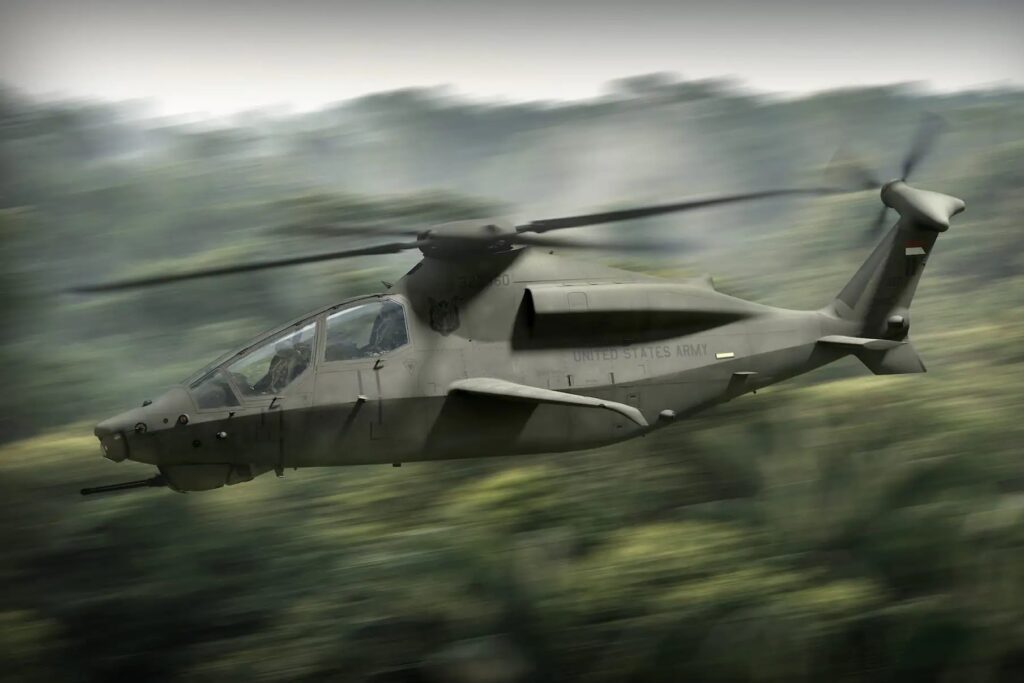The US Army has discontinued the Future Attack Reconnaissance Aircraft (FARA) program due to resource constraints and emerging capability requirements.
After the conclusion of prototyping activities, the development of the FARA is to be halted. Instead, the Army will focus on existing platforms and increase its emphasis on unmanned aerial reconnaissance capabilities.
“We are learning from the battlefield—especially in Ukraine—that aerial reconnaissance has fundamentally changed,” said the Chief of Staff of the Army, General Randy George. “Sensors and weapons mounted on a variety of unmanned systems and in space are more ubiquitous, further reaching, and more inexpensive than ever before.”
Consequently, the US Army will increase investments in research and development of unmanned aerial systems to use as reconnaissance platforms. Two older reconnaissance drones, the RQ-7 Shadow and RQ-11 Raven, will be phased out as they were deemed obsolete.
Amid a wider realignment of its aviation strategy, it will also procure additional UH-60M Blackhawk helicopters and begin production of the CH-47F Chinook Block II heavy-lift helicopter.
What was the FARA program?
The FARA was a program initiated by the US Army in 2018 to develop a new generation of manned reconnaissance helicopters to replace the Bell OH-58 Kiowa scout helicopter retired in 2014. Among the requirements was that the new-generation armed reconnaissance helicopter should be 12 meters (40 feet) in rotor diameter and fuselage width and reach a top speed of 333 kilometers per hour (180 knots).
The competition involved Boeing, Sikorsky, Karem, Bell and AVX Aircraft in partnership with L3 Technologies. In 2020, the Bell 360 Invictus and the Sikorsky Raider X were selected as the finalists.

Another helicopter program, the Future Long Range Assault Aircraft (FLRAA), is currently being held by the US Army to develop a successor to the Blackhawk. On December 5, 2022, Bell Textron was officially awarded a $1.3 billion development contract for the V-280 Valor, a tiltrotor aircraft able to carry up to 14 troops and four crew members. The first production aircraft is expected to be delivered by 2030.

